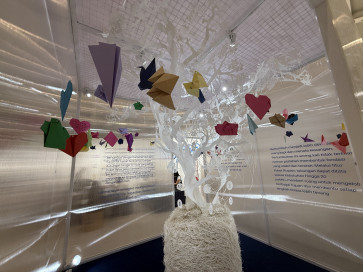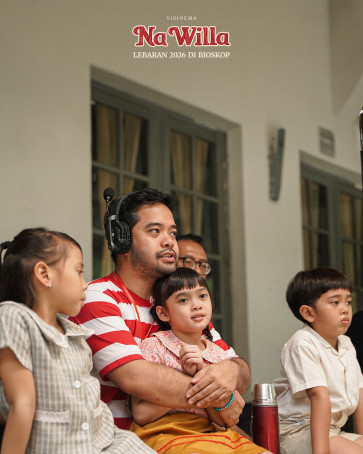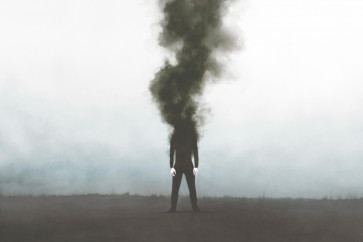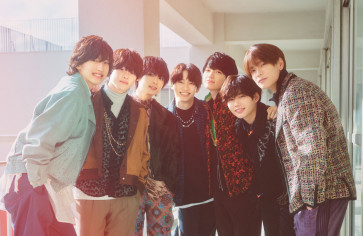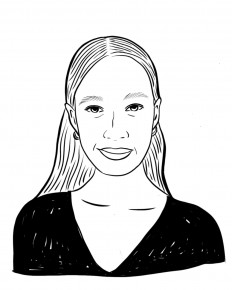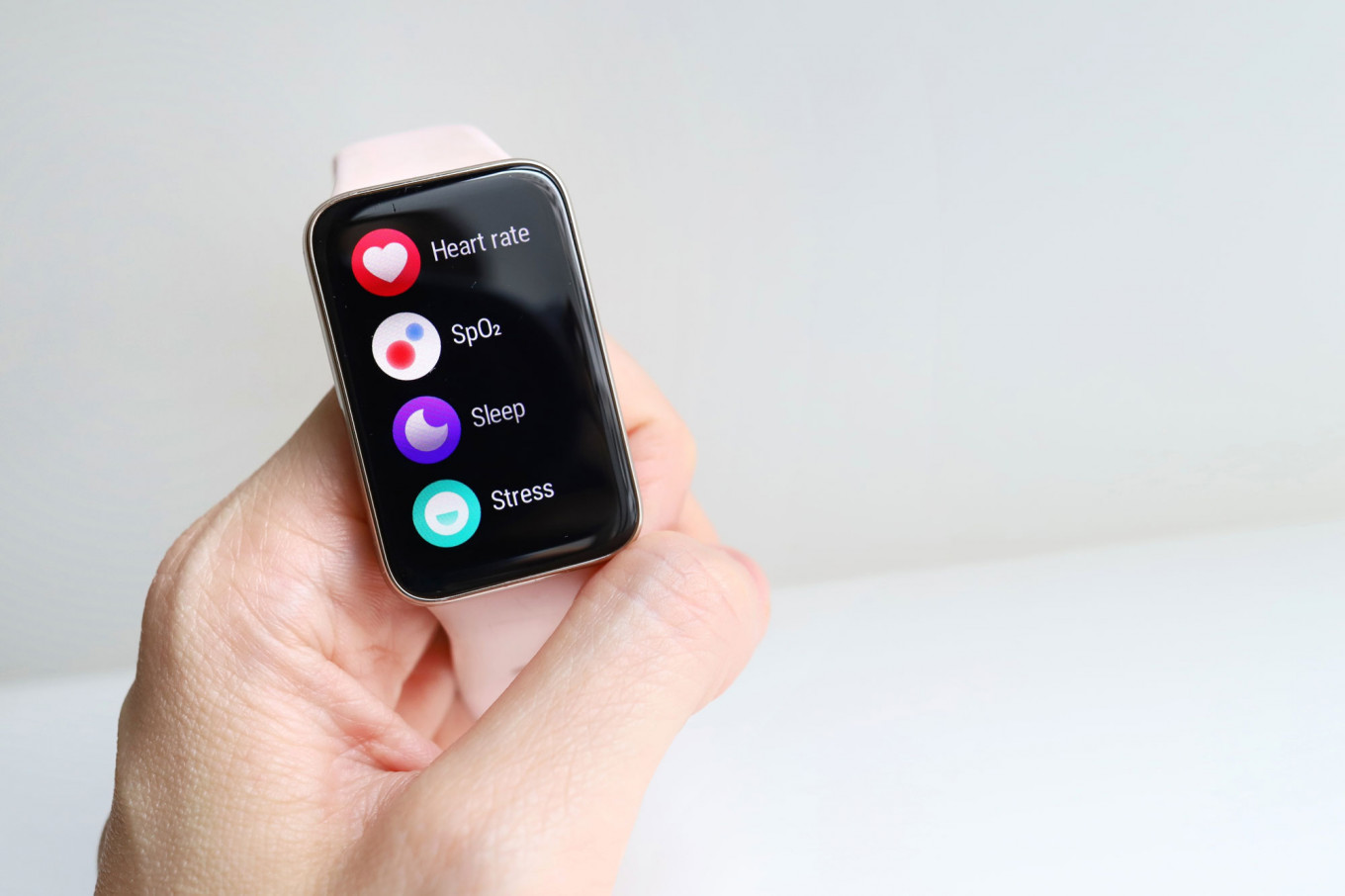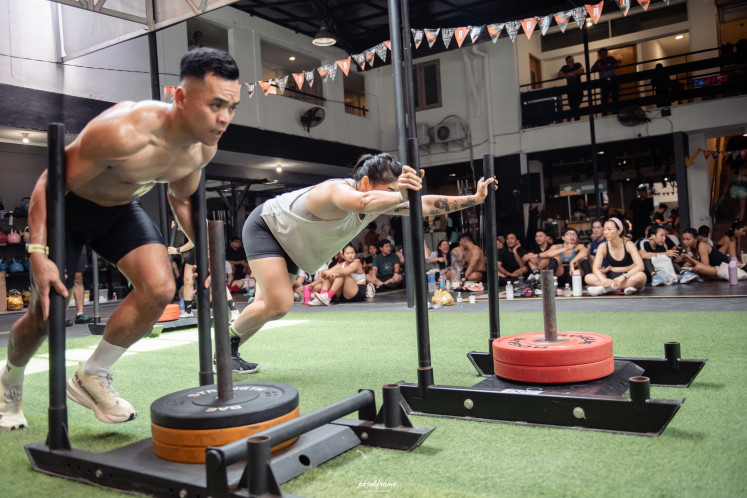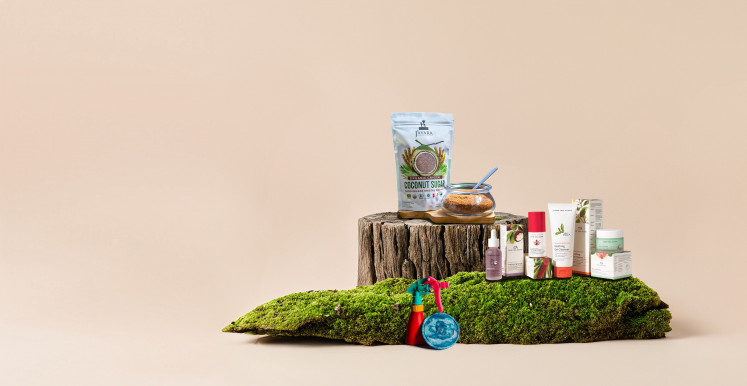(Courtesy of Shutterstock)
It’s late, and the bedroom is quiet. My partner, Adit, has already drifted off to sleep next to me, his eyes closed but not quite still. I glance at my wrist. My smartwatch has dutifully been recording my “sleep” although I’m still wide awake, racing through plot twists and character arcs.
Meanwhile, Adit’s watch insists he’s been up several times. Here we are, both trying to manage our sleep habits with the latest technology, yet neither of us is getting it right. Or are we missing the point?
In a world where sleep is quantified, these trackers push our expectations toward perfection, forgetting that sleep—like relationships—is naturally imperfect.
Smartwatches and sleep
Like most, Adit and I didn’t buy smartwatches just to be trendy. A survey by Rakuten Insight in 2022 showed that 42 percent of Indonesian smartwatch owners use them as fitness trackers, making Indonesia one of the largest markets for wearable tech in Southeast Asia.

Thank you!
For signing up to our newsletter.
Please check your email for your newsletter subscription.
The tech powerhouses, Apple and Samsung, dominate the market, while fitness brands like Garmin, Suunto, and Coros offer intriguing niche options. Ranging from 4 million to 13 million rupiah each, these gadgets aren’t exactly cheap. But for those who are serious about their health and fitness, they might just be worth the splurge.
Annisa, a 29-year-old specialist working for a local government agency, as well as a part-time climber and casual runner, picked up a Coros smartwatch to keep tabs on her running progress. “My coach often wants to know specifics such as elevation, distance, maximum heart rate, pace, all that jazz—and this watch covers it all while still saving battery.”
The fact that most of these devices have the capacity to track our slumber is helping raise our awareness of just how important sleep is.
“Advanced nations recognize that a healthy life revolves around three pillars: nutrition, fitness and sleep. With the rise of smartwatches in Indonesia, awareness about the importance of sleep is growing,” explains Andreas Prasadja, a doctor at the Sleep Disorder Clinic at Mitra Keluarga Kemayoran Hospital.
Read also: Indonesia’s timeless elixir: The staying power of ‘jamu’
Tracking slumber
Adri, a 30-year-old worker in a housing-focused NGO, is one of many embracing this wholesome direction.
“I discovered my sleep quality was terrible! I thought I was getting enough rest, around eight hours, but it turns out I was only getting about six hours of proper sleep. My sleep stages were all over the place, especially the deep sleep,” he shares.
Smartwatches are able to provide this data by using a combination of sensors, including accelerometers for movement detection and photoplethysmography to monitor heart rate by detecting blood flow changes through the skin. Advanced models even have pulse oximeters and skin temperature sensors.
These data are then crunched into insights about our sleep stages—REM sleep, deep sleep and light sleep—all aimed at improving our overall well-being. Beyond sleep deprivation, this tech can even spot more serious issues such as hypersomnia and potential signs of sleep apnea.
Each brand also uses proprietary algorithms to interpret this data, which means the accuracy and detail of sleep tracking varies across different devices.
This is why doctors caution against overreliance on the numbers from these trackers.
Andreas adds that studies show sleep duration recorded by different brands can vary by 30 to 40 minutes compared with polysomnography, a comprehensive diagnostic tool that looks at parameters like oxygen levels, muscle tone and brain wave analysis. This is what doctors use to study sleep.
Read also: Jordan Susanto is searching his soulSleep anxiety
While sleep trackers gather a lot of data, they miss the gold standard for assessing sleep stages: our brain activity.
Sleep tracking devices “are predictive tools, not precise diagnostics,” Andreas explains.
Imagine waking up feeling refreshed, only to see a poor sleep score on your smartwatch. Suddenly, you are wondering if you did not get enough rest. This could be a case of orthosomnia, a relatively new medical term coined for an unhealthy obsession with getting perfect sleep data.
Stefani started feeling this anxiety in a subtle way. “My sleep schedule was a mess. I’d go to bed at 4 or 5 a.m., so having the watch made sleep feel like I had a target to hit [...] But then I got too reliant on the alarm, and when it was charging, I’d forget how to wake up on my own!”
This obsession is especially common among high achievers. A surprising piece from ABC Australia in April 2023 talked about how Australian Football League athletes had become overly fixated on the connection between their sleep data and their daily performance.
That’s the kind of thing that can keep you up at night.
Tune to your cue
Andreas reminds us that it is still more important to listen to our internal clock. “Aiming for perfect sleep is about tuning in to your body's natural signals and following your circadian rhythm.”
To get the optimal sleep duration of around seven to nine hours, ditch the drastic changes. “Do it gradually,” he suggests, “adjust your bedtime in small increments, like 15 minutes every few days.”
An important question to ask is: “How do you actually feel? Are you full of energy, or dragging your feet?” These are the real indicators of your sleep quality, not just the data on your wrist.
And if you are looking to wind down before bed, Andreas recommends simple routines that help you relax. “Maybe it's listening to soothing music or indulging in a skincare routine. Find those 'me time' moments that make you feel good.”
After all, sleep isn't just about logging hours; it's about enjoying the journey to dreamland.
Read also: The hype and high of rock climbingThis article is part of The Weekender, a biweekly tabloid that appears in the Saturday edition of The Jakarta Post. Offering a variety of feature articles on lifestyle and culture, it aims to enriching your reading experience. Subscribe here to access The Jakarta Post’s Saturday edition and all Premium content.




